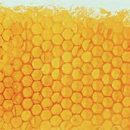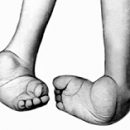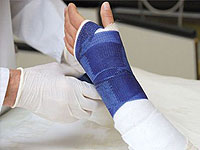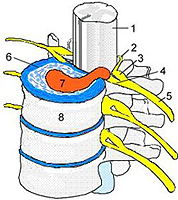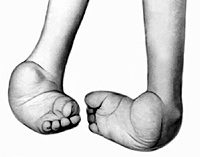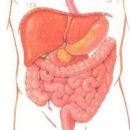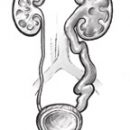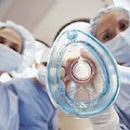Any injury, even small, delivers us a lot of inconvenience: pain, inflammation, swelling. But, most, perhaps, unpleasant is the formation of a scar or scar. Especially if this wound is in a prominent place. The bad news is that in summer such injuries are almost inevitable: we go beyond the city, ride on the rollers and bikes, we carry outdoor clothes - you will not be revealed! But the good news is that with a competent approach you can speed up the wound healing process and even avoid scars.
Content
 In order to help your skin quickly and without consequences to recover after cuts, scratches or burns, it is necessary to imagine the main stages of wound healing.
In order to help your skin quickly and without consequences to recover after cuts, scratches or burns, it is necessary to imagine the main stages of wound healing.
- Phase inflammation. From the very first minutes after the injury, the formation of blood cloth begins in the tissues to stop bleeding, as well as the fight against microbes that hit the open wound. This is accompanied by inflammation, which manifests pain, redness and swelling. The duration of the first phase – up to 7 days. By the 7th day, the wound defect is filled with a new cloth playing an important role in wound healing - the so-called granulation tissue.
- Phase proliferation. This phase begins from the 7th day and lasts up to 4 weeks. The wound defect continues to be filled with a granulation tissue, which consists of connective tissue (is based on collagen), new germinating capillaries and inflammation cells. When the granulation liner is ready, the cells of the epithelium settles on it and close the wound. At the end of this phase, the edges of the wound are already connected by a young faster scar, which still remains relatively easily stretched and well visible due to the large amount of vessels contained in it. Scar at this time has bright red color.
- Education scar. This phase begins with the 4th week and lasts about 1 year. The transformation of the bright scar into the scar is less bright and therefore less noticeable. The wound is finally filled with connecting cloth and epithelium. Collagen growth continues: Primary gentle collagen is replaced by more rough and durable. As a result, a scar is formed, the strength of which is 70–80% of skin strength. At the end of this phase, due to the reduction of smooth muscle cells, the edges of the wound occur.
However, this is separation for phases – Pretty conditional, since the wound healing processes do not go strictly one by one, but develop in parallel, with a predominance of some one in a certain period of time. It is much more important for successful treatment to keep in mind that these three phases pass through two stages of the state of the wound fabrics – Hydration (wound cleansing) and dehydration-regeneration (tissue restoration).
Be or not to be scars?
Hydration and dehydration of the wound fabric means that first wet wound, with the effect of wetting, and then dry. In terms of competent care, it is important to correctly apply wound-healing funds at the right time. At the hectification, the wound needs moisture and purification. At the stage when the wound has already begun to filhes, protection and nutrition of the newly formed fabric is required. Start using a special drug already at the stage «wet» Wounds are very important to accelerate the closure of the wound, reducing the risk of infection and maintain tissue elasticity. The wound closed for 2 weeks usually does not lead to noticeable scars.
What a means to choose for rapid healing of wounds?
Typically, manufacturers of pharmaceutical preparations offer us different means for different stages of wound healing. This creates certain difficulties, since for competent treatment requires a continuous effect of the active substance on the wound surface at all stages, starting from the moment of injury. These criteria are fully consistent with solk sector-based drugs. They are produced in the form of gel and ointment – These 2 forms are optimally suitable for the treatment of wounds at all stages, which makes it possible to achieve rapid healing without coarse scars.
SalkoSeril is a biologically standardized hemodialysis, which acts physiologically and is widely used for wound healing, and also has proven itself in the treatment of such serious diseases as trophic ulcers and breakdowns.
Salcossuril® activates rehabilitation processes and ensures healing by stimulating regeneration and increasing collagen synthesis. Salcossuril® Gel and ointment are specially designed taking into account the staging of wound healing. Initially, the Gel SolkoSeril should be applied® – It does not contain fat, cools and moisturizes the wound, and also stimulates the formation of granulation tissue. When the wound will begin to push, it should be moved to the use of ointment solkirel®. It performs two functions at once: it creates a protective film on the surface of the wound and provides fast and final healing with a good cosmetic effect.
Salcossuril® Gel and ointment heals wounds «in two bills»!

